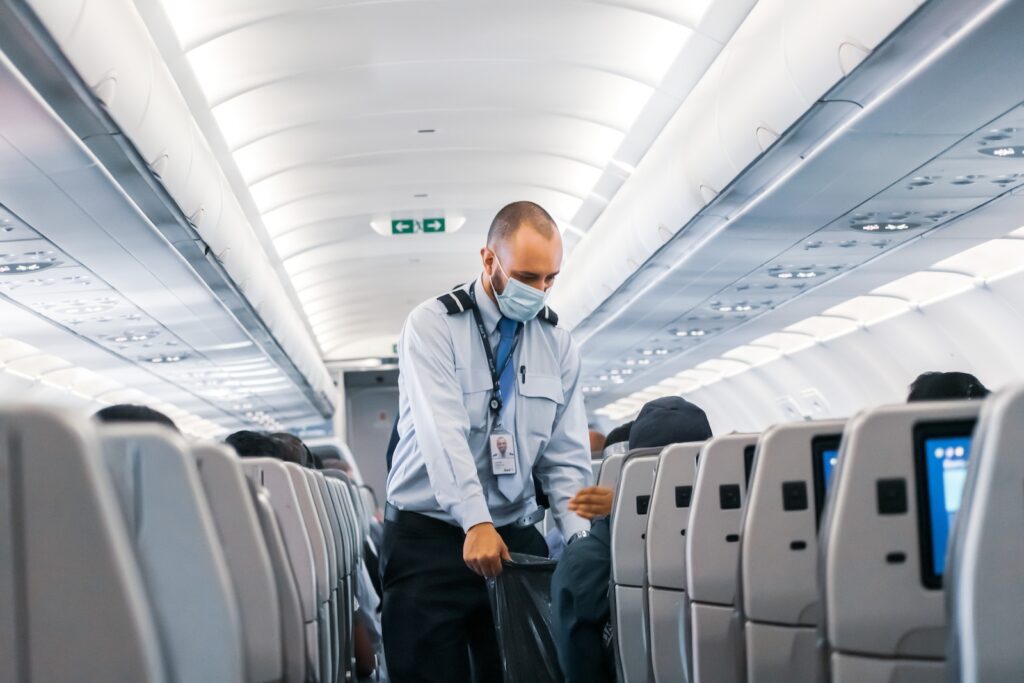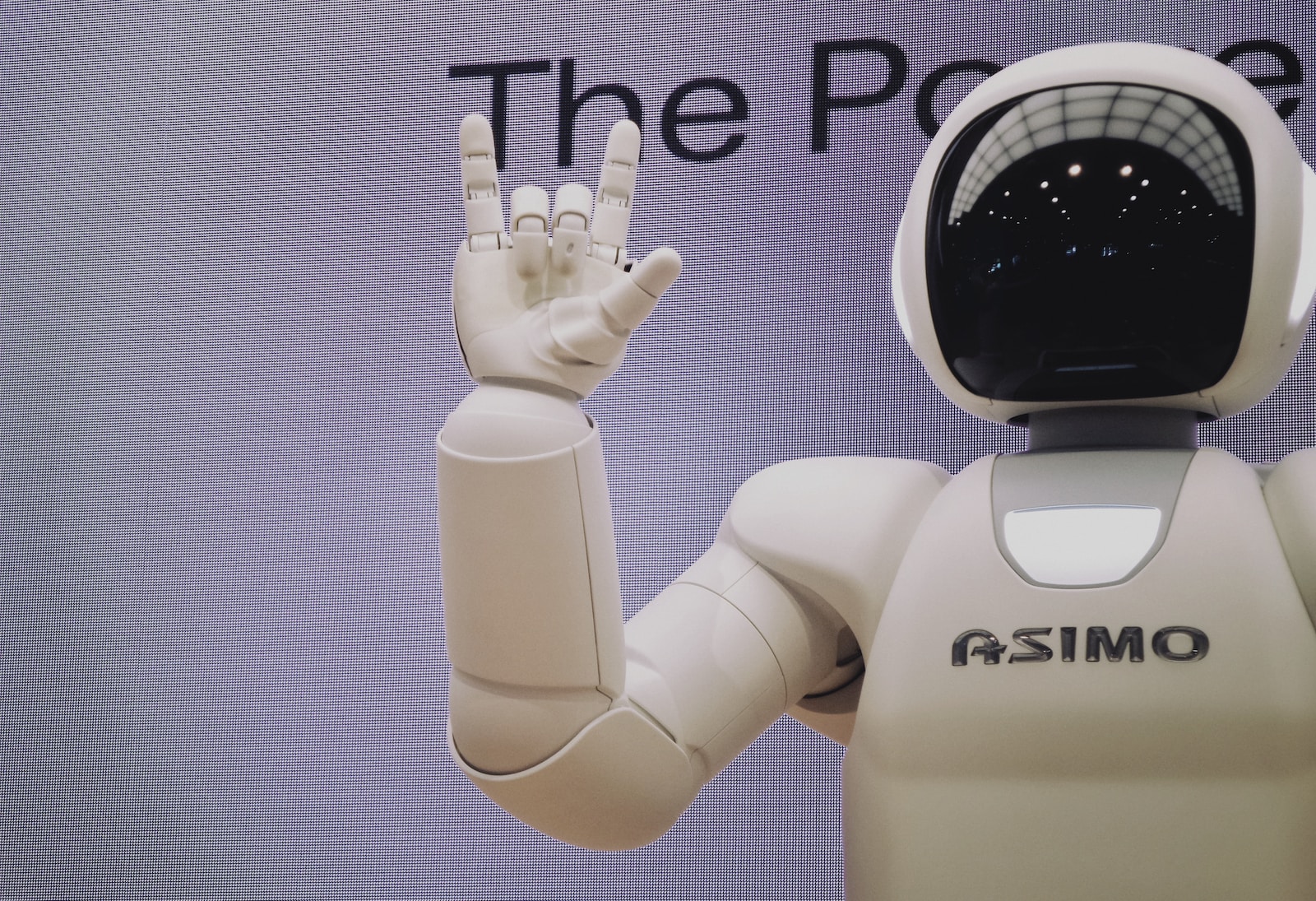The COVID-19 pandemic has had a profound impact on the global travel industry, causing unprecedented disruption. However, as the world gradually recovers, the travel industry is bouncing back, and Artificial Intelligence (AI) is playing a pivotal role in this resurgence. AI-powered solutions are enhancing safety, convenience, and efficiency, revolutionizing the travel experience in the post-pandemic world.

AI and Safety: Ensuring Secure Travel in the New Normal
Safety has become a paramount concern for travelers in the post-pandemic era. AI is stepping up to address this concern by powering various safety measures in the travel industry.
AI-powered thermal screening systems at airports and train stations are helping detect individuals with elevated body temperatures, a potential symptom of COVID-19. These systems use AI algorithms to analyze thermal images and provide real-time alerts, enabling swift action to prevent potential spread of the virus.
AI is also enhancing safety in hotels. For instance, AI-powered robots are being used for room service to minimize human contact. These robots can deliver food and other items to guest rooms, ensuring safety while maintaining high service standards.
Moreover, AI is powering contactless technologies that are becoming increasingly prevalent in the travel industry. From contactless check-ins at hotels and airports to contactless payments, AI is ensuring safety while providing convenience.
AI and Convenience: Simplifying Travel in the Post-Pandemic World
In the post-pandemic world, travelers are seeking not just safety, but also convenience. AI is delivering on this front by simplifying various aspects of travel.
AI-powered chatbots are providing 24/7 customer service, answering queries, making reservations, and providing personalized recommendations. These chatbots use natural language processing, a branch of AI, to understand and respond to user queries in a conversational manner.
AI is also powering personalized travel experiences. By analyzing user data, AI can provide personalized recommendations for hotels, flights, and tourist attractions. This not only enhances the travel experience but also saves time for travelers.
AI-powered predictive analytics is another area where AI is enhancing convenience. By analyzing historical data and current trends, AI can predict flight delays, weather conditions, and even tourist crowd levels at various attractions. This helps travelers plan their trips more effectively.

AI and Efficiency: Streamlining Operations in the Travel Industry
Efficiency is another area where AI is making a significant impact in the post-pandemic travel industry. By streamlining operations, AI is helping travel companies operate more efficiently and cost-effectively.
AI-powered dynamic pricing systems are helping airlines and hotels optimize their pricing strategies. By analyzing factors such as demand, competition, and seasonality, these systems can adjust prices in real-time, maximizing revenue while ensuring competitive pricing for customers.
AI is also streamlining back-end operations in the travel industry. For instance, AI-powered systems are automating tasks such as ticket booking, invoice processing, and inventory management, freeing up staff to focus on more strategic tasks.
Moreover, AI is helping travel companies make data-driven decisions. By analyzing large volumes of data, AI can provide insights into customer behavior, market trends, and operational performance. This helps travel companies make informed decisions, enhancing their competitiveness in the post-pandemic world.
In conclusion, AI is playing a crucial role in the recovery and transformation of the travel industry in the post-pandemic world. By enhancing safety, convenience, and efficiency, AI is not only helping the travel industry bounce back but also shaping a new era of travel that is safer, more convenient, and more personalized. As we navigate the post-pandemic world, AI-powered solutions will continue to evolve, further revolutionizing the travel experience.
AI and Sustainability: Paving the Way for Eco-Friendly Travel
In the post-pandemic world, there is a growing emphasis on sustainability in the travel industry. Travelers are becoming more conscious of their environmental footprint, and travel companies are seeking ways to operate more sustainably. AI is playing a key role in this shift towards sustainable travel.
AI-powered systems are helping airlines optimize their flight paths, reducing fuel consumption and carbon emissions. By analyzing factors such as weather conditions and air traffic, these systems can determine the most efficient flight paths, contributing to sustainability in air travel.
AI is also helping hotels operate more sustainably. For instance, AI-powered energy management systems can optimize energy use in hotels, reducing their environmental impact. These systems can adjust heating, cooling, and lighting based on occupancy and usage patterns, ensuring energy efficiency.
Moreover, AI is helping travelers make sustainable choices. AI-powered platforms can provide information on the environmental impact of different travel options, helping travelers make informed decisions. These platforms can also recommend eco-friendly hotels and attractions, promoting sustainable tourism.
In the post-pandemic world, the travel industry is undergoing a transformation, and AI is at the forefront of this change. By enhancing safety, convenience, efficiency, and sustainability, AI is shaping the future of travel, promising a travel experience that is not just safer and more convenient, but also more personalized and sustainable. As we look forward to a new era of travel, the potential of AI is just beginning to be realized.








